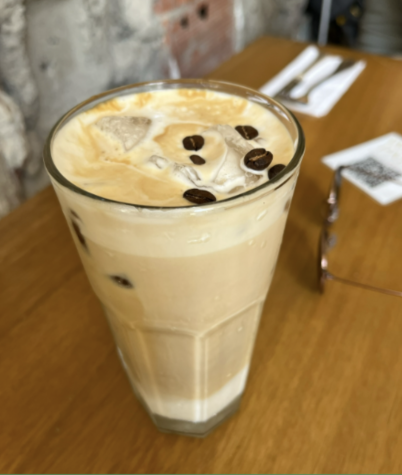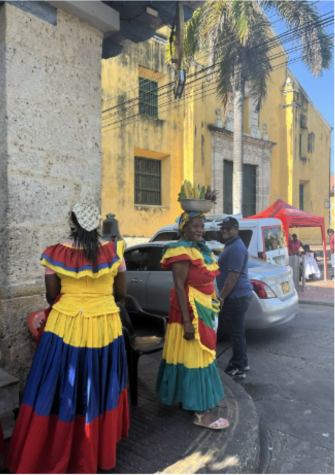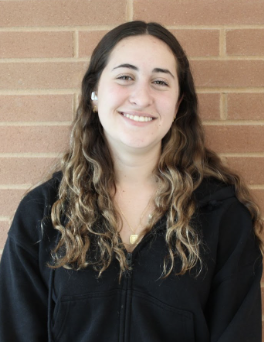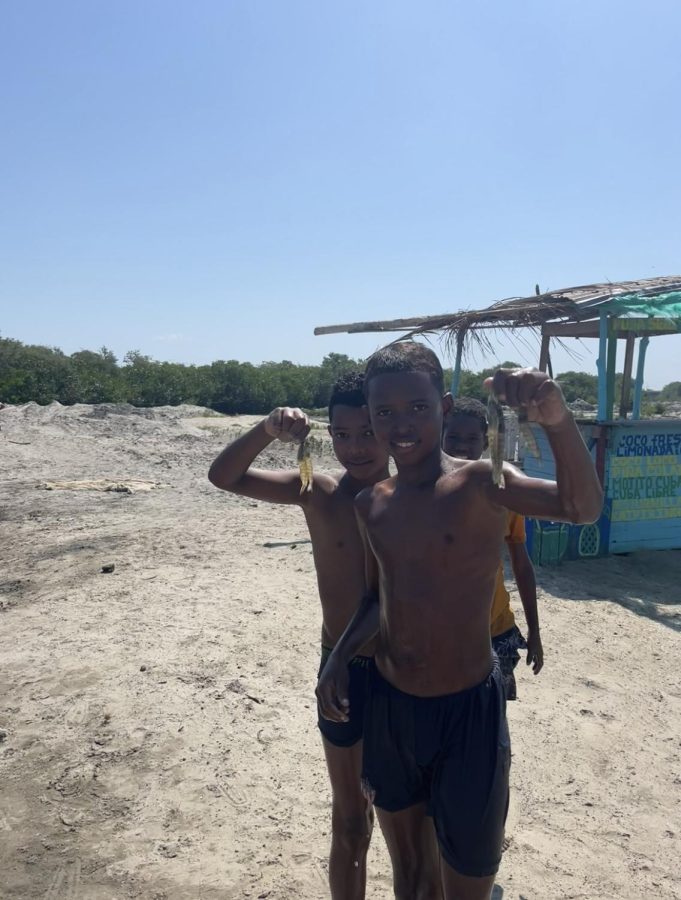Traveling abroad provides purpose, value learning new cultures
Young boys may spend their time on the weekends outdoors catching fish or swimming in nearby waters.
Over the past February break, I had the special opportunity of traveling to South America and exploring parts of Colombia. When my parents first shared their idea of this destination, I was definitely skeptical as I had never heard of anyone traveling to Colombia before. However, I found that exploring a new culture created eye-opening moments and a week filled with new encounters.
Colombia has the world’s second-largest population of Spanish speakers and is the fifth-largest country in Latin America. Colombia is considered a third world country as the country faces higher levels of poverty, crime and corruption. Available access to infrastructure is also very low. But my parents wanted to take a trip that would offer learning experiences, so despite the language barrier, we found ways to communicate with people and experience real Colombian culture.
We passed many neighborhoods where there were homes with no doors or walls, yet there were still families living inside them. Clothing was hanging heavily on clotheslines with an uncountable amount of skinny stray dogs roaming around.

During our stay on a canoeing tour, we saw a group of young boys fishing with a large net. I watched closely as they took turns working together to throw the net and catch whatever was swimming in the waters. As I passed them, I smiled and waved when two of these boys ran over to me holding up live shrimp that they had caught. Of course, I could not understand what they were saying as they were speaking Spanish. However, the tour guide explained to me that they were trying to sell me the shrimp and make some money for their families.
This was extremely mind altering as I began to think of the life I live back in the Westport “bubble”. How can my life be so different? These children were spending their Saturday in Summer outside under the 90 degree Colombian sun trying to make money for themselves and their families.
I left Colombia with a wider education on what the world has to offer and that there is so much more than what is inside the Westport bubble, or even the United States — Cassidy Gutman ’25
I couldn’t fathom over the idea that they were performing work and sellings at such a young age. When I was around nine, I was going to summer camp and playing sports. Meanwhile these children have already started to work for their families which would mean they know about the financial struggles in their area.

This made me think about how at that age, I never thought of anything like this as I had very little knowledge of the real world. The major contrast in their economy made me feel very fortunate for the way I grew up.
I left Colombia with a wider education on what the world has to offer and that there is so much more than what is inside the Westport bubble, or even the United States. So if you ever have the option to go to Miami Beach Florida or visit a foreign country, choose the country and expose yourself to an unknown culture.

Journalism allows your voice to be heard—at least, Cassidy Gutman ’25 believes so. As a Staff Writer, she loves writing Inklings articles and creating...






























































